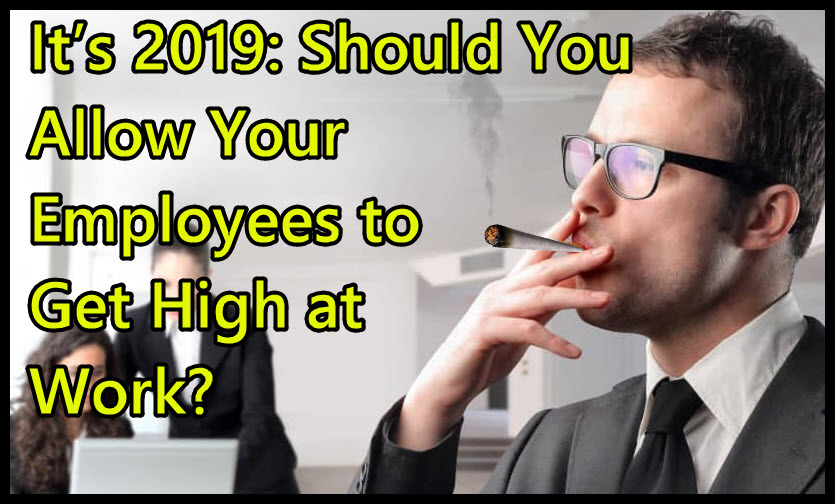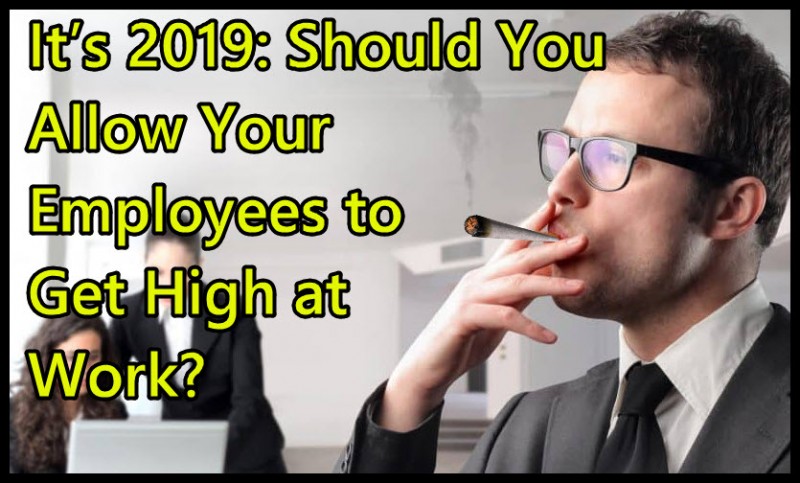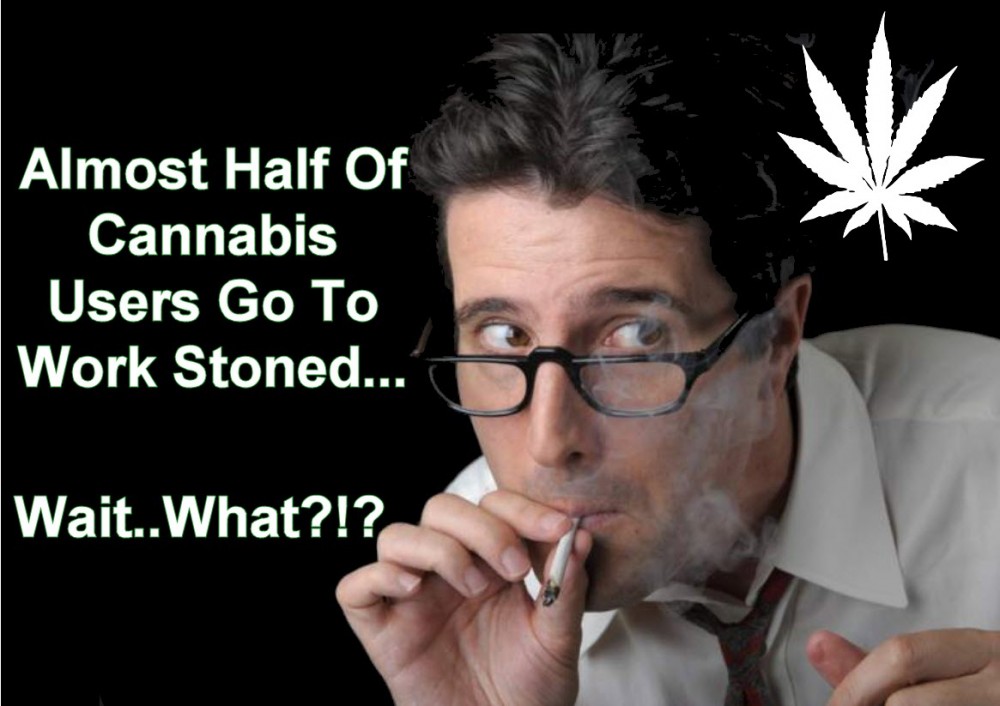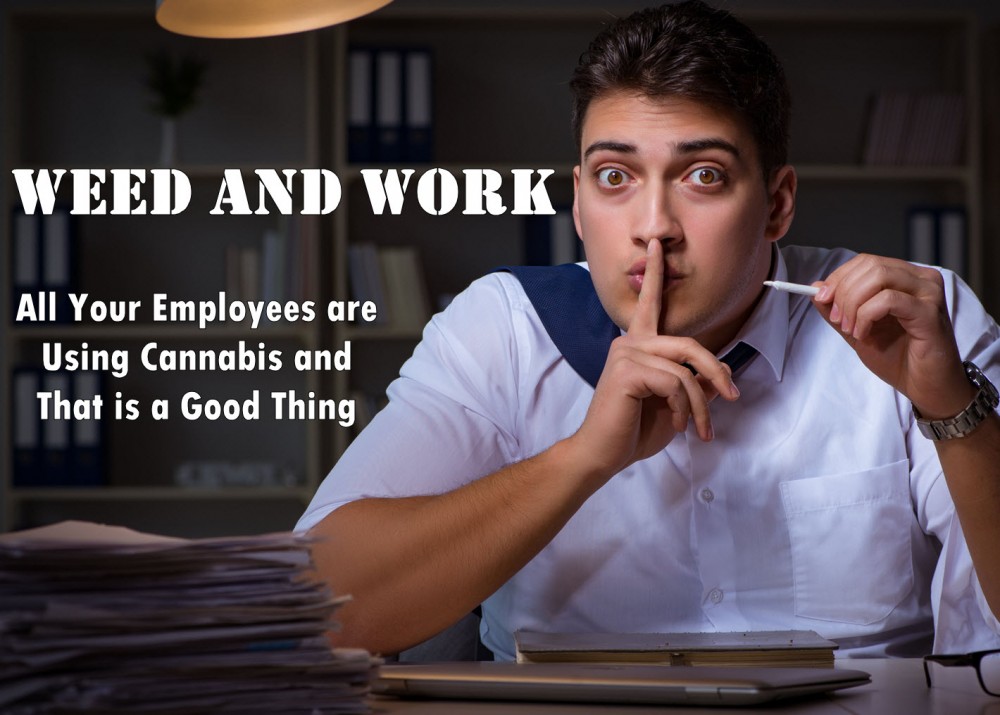It’s 2019: Should You Allow Your Employees to Get High at Work?

Today, there are 33 states that have allowed cannabis to be used medicinally with 10 more states who have approved recreational cannabis.
With such widespread use of cannabis, and acceptance growing stronger each day, the line between work and pot use is becoming hazier. But do we need to draw a line in the first place? Some employers are catching up with the times by adjusting their workplace and drug testing policies to accommodate those who need to consume cannabis. On the other hand, there are those who are lagging far behind.
A recent poll funded by by Seattle and Portland-based communications agency Quinn Thomas and conducted by DHM Research found that 1 in every 4 employees living in cannabis-legal states are high at work. The purpose of the survey was to have a better understanding of today’s cannabis consumers, and how their behavior these days can impact industry trends. They surveyed 900 cannabis consumers, with 300 of them living in Colorado, Washington, and Oregon each. The poll was conducted from January 8 through 14 of this year, and the researchers stated a margin error of around 3.3%.
In an email to the Seattle Times, Quinn Thomas VP Zach Knowling said: “There is a lot of information out there about the cannabis industry and its regulatory structure, but not much is known about consumers.”
“We felt our experience researching and reaching unique audiences could build greater understanding of who they are,” he explains.
Though the survey was designed to help the researchers better understand consumer behavior, employers should take note of the findings. One of them was that after a state legalized cannabis, current cannabis consumers tended to increase their usage. In Washington they found that 44% of participants admitted to being regular consumers, which translates to toking up daily or at least a few times a week, while 36% said that they already consumed as much before legalization.
The survey also says that getting high at work is no longer uncommon. But neither is drug testing. According to 21% of respondents, they were made to take a drug test for cannabis within the last year and around the same number of participants said that they had to stop getting stoned for some time just to pass a drug test.
The New Reality Is Complicated
There’s no way of escaping it: everyone who lives and works in a state where cannabis is legal will have to deal with the possibility that someone at work will come in stoned. The fact that the rules are vague at best makes it tough on both employees (who use it medically or otherwise) as well as employers, who have to figure out a reasonable course of action.
Employers risk losing their best guys, and employees risk losing their jobs.
Pretty much every state still gives employers full discretion whether or not to fire someone who has tested positive for THC, or who went to work stoned. Even the most liberal states like California. However, we can’t blame employers because they also have a right to test people for a drug-free workplace.
Another thing that adds to the complication is the fact that a definitive cannabis impairment test does not exist yet. There’s also a huge difference between cannabis and booze – while blood tests and a Breathalyzer can prove recent alcohol use, cannabis compounds stay in one’s blood for months at a time. If you test positive for cannabis, it does nothing more than say that you’ve used pot sometime within the last few months.
Take it from the American Automobile Association (AAA), who admits that cannabis impairment tests are unreliable.
But what if your best man on the team needs his cannabis for medical purposes? If an employee can legally partake because they have a write up from a doctor, federal laws don’t mandate employees to disclose information about illnesses that require using cannabis. So if you fire an employee, you could claim discrimination against people with disabilities.
Employees need to take heed; it only takes one employee who’s been successful in a lawsuit that could be the tipping point on reasonable accommodation requirements.
Savvy companies are one big step ahead by taking matters into their own hands, as new state laws and the federal government drag their feet. The only way you can protect yourself is to make accommodations for cannabis users in your company policy, unless you’re willing to face the risk of losing your best to liberal employers.
OTHER STORIES YOU MAY ENJOY...
CANNABIS AT WORK, YES, FOR SOME JOBS, CLICK HERE.
OR..
STONED AT WORK, 50% SAY YES, READ THIS, CLICK HERE.









